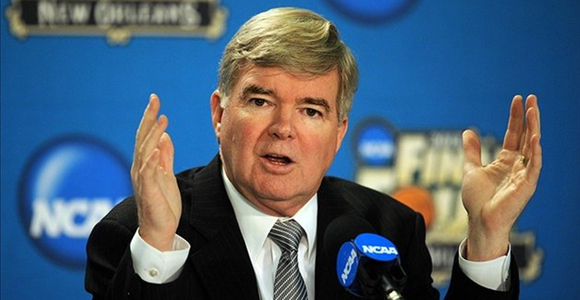The NCAA has hammered Missouri’s football, baseball and softball programs due to academic tutor misconduct.
The organization released the following list of punishments today with a straight face while fully knowing that North Carolina went unpunished for years of alleged academic fraud:
The NCAA report is out on #Mizzou. Softball and baseball banned from 2018-19 postseason. Football banned from 2019-20 postseason. Each of those programs will have a 5% reduction in scholarships for the 2019-20 year. Full penalties in the pic pic.twitter.com/oA3JCGD9sk
— Gabe DeArmond (@GabeDeArmond) January 31, 2019
Here’s the release from the NCAA, which often sticks it to programs like Missouri while letting programs like North Carolina cheat without punishment:
A former University of Missouri, Columbia, tutor violated NCAA ethical conduct, academic misconduct and academic extra benefits rules when she completed academic work for 12 student-athletes, according to a Division I Committee on Infractions panel.
Although the tutor said she felt pressure to ensure student-athletes passed courses, according to the committee’s report, the investigation did not support that her colleagues directed her to complete the student-athletes’ work.
In its decision, the committee stated, “Simply put, 12 student-athletes did not complete their own work.” It continued that the tutor engaged in the activity despite receiving extensive and comprehensive education on appropriate tutoring practices.
For most of the student-athletes, the tutor completed online coursework that included assignments, quizzes or exams. She completed an entire course for one student-athlete and completed portions of a placement exam for two student-athletes.
During her interview with the university and the NCAA enforcement staff, the tutor reported the way in which she was assigned one particular student-athlete to tutor was changed, and an academic coordinator contacted her directly to let her know the student needed to pass a course to graduate. She continued that she felt pressure to make sure the student passed and resorted to completing the student-athlete’s coursework, the committee said. The activity repeated itself with other academic coordinators and other student-athletes, so the tutor continued to complete varying degrees of academic work for student-athletes, according to the report.
The work the tutor completed for the 12 student-athletes fell into three categories: courses offered by the university; courses offered by other schools; and a math placement exam at the university. She completed work for some student-athletes in more than one category.
She completed work for six student-athletes in two different math courses at the university. Missouri determined three of the student-athletes violated the university’s honor code. The university was unable to determine if two of the student-athletes violated the honor code because of lack of information and the sixth student-athlete was unresponsive to the inquiry.
The committee found the tutor completed math coursework from other schools for six of the student-athletes. In one instance, she completed an entire course for a football student-athlete. Missouri did not review the conduct under its honor code, but rather gave the information to the two involved schools. One of the schools found academic misconduct occurred in the case of four student-athletes who took the course at the non-NCAA school. The second school – Adams State, a Division II school – could not determine whether the conduct violated its academic misconduct policy because it did not have enough information to prove violations occurred.
The tutor also assisted two football student-athletes’ completion of Missouri’s math placement exam. Missouri requires all students take the exam to determine whether they must complete a remedial math course before enrolling in college algebra. The instructions on the exam state that the test be taken alone and without assistance, but the tutor remained in the room and assisted both student-athletes with the test questions. Missouri determined both student-athletes violated its honor code.
The NCAA enforcement staff did not name the tutor in the unethical conduct allegation largely due to her repeated threats to leak information about the case, the committee said. As it reviewed the case, the committee determined that the tutor was a primary individual and included her in the case. The tutor was then provided with the opportunity to participate in the full process and respond to the allegation. The committee ultimately held her accountable for her conduct and included her in its unethical conduct violation.
In its report, the Committee on Infractions directly addresses the difference between Mizzou and UNC's cases, which is, essentially, Mizzou admitted to there being fraud and UNC did not. pic.twitter.com/QZfxIslGC5
— Stewart Mandel (@slmandel) January 31, 2019


